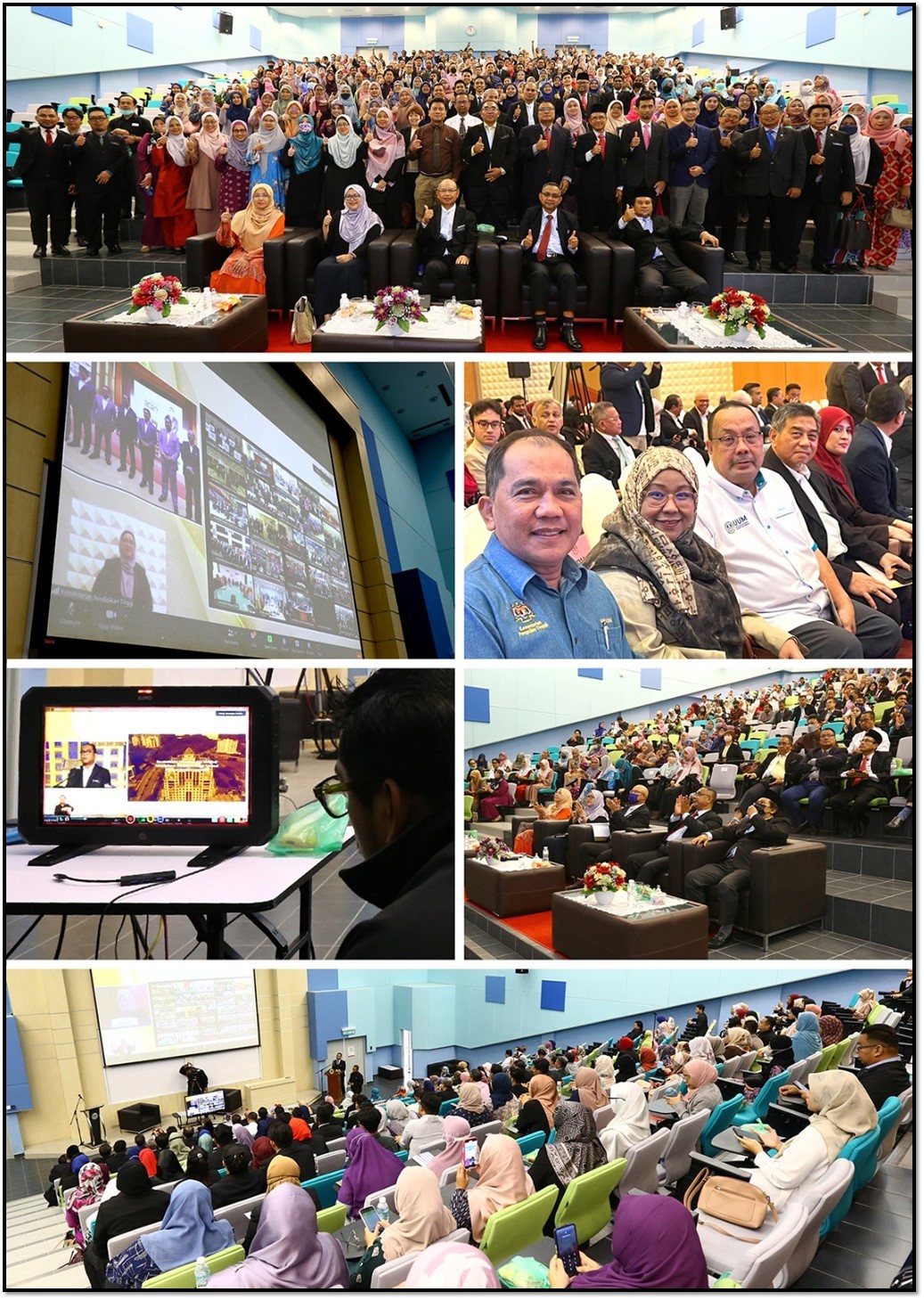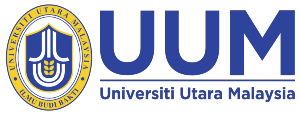INCREASED CONFIDENCE IN THE NATIONAL HIGHER EDUCATION SECTOR IS THE KEY TO RECOVERY
 UUM ONLINE: The Minister of Higher Education, Dato' Seri Mohamed Khaled Nordin has established 'trust' as the basis for leading the Ministry of Higher Education (MoHE) in an effort to restore and increase people's confidence in the government, particularly in the country's higher education sector.
UUM ONLINE: The Minister of Higher Education, Dato' Seri Mohamed Khaled Nordin has established 'trust' as the basis for leading the Ministry of Higher Education (MoHE) in an effort to restore and increase people's confidence in the government, particularly in the country's higher education sector.
He is confident and aware that trust is a 'shrinking and isolated' value in this age.
According to him, the "trust deficit" has become a widespread problem in a variety of government institutions and systems, including the MoHE, public institutions of higher education, private institutions of higher education, and even polytechnics and community colleges.
"We must return and re-establish lost trust. We must once again be the most trusted ministry and the most credible system. Thus, trust will be the most important value Malaysians place in the higher education system during my administration.
"They chose us because we are true educators. Spreading knowledge, maturing thinking, leading maturity, and discovering the true truth," were his words yesterday at the Minister of Higher Education's New Year's 2023 Address at Za'ba Hall, MoHE.
He also stated that the country requires an efficient and brilliant higher education sector. As a result, it must begin with authoritative and accomplished leadership.
In this regard, Mohamed Khaled reminded the vice-chancellors of all institutions of higher education (IHEs) in Malaysia of their four primary responsibilities: being the main spokesperson for knowledge institutions on national issues; developing various strategic networks for the benefit of the university; collecting funds, waqf, endowment, infaq, and any kind of contribution, material or non-material, to ensure the university functions well and uncovering the university's full potential.
Starting in the new year, he expressed his determination on focusing on 11 aspects of higher education as a vital hope and future for the country.
First, MoHE and all agencies operating under its aegis must provide a firm, comprehensive, and accurate interpretation of national aspirations. The goals and objectives of the ministry cannot stray from the overarching national strategy. As a result, the National Review Committee will be set up to make some necessary adjustments to existing policies.
Second, MoHE will work in a way that is professional, fair, objective, and not influenced by politics. All missions, plans, and projects that aim to improve the quality of higher education in the country will have to meet certain standards.
Third, re-evaluate MoHE’s overall capacity, performance, and future mission. The quality of Malaysia's national education system is the yardstick by which the country's progress is measured, and it represents the single most important factor in the country's competitiveness.
Fourth, improve Malaysia's intellectual resources because a civil (madani) Malaysia needs citizens who are fair, knowledgeable, and well-cultured because they have the best education system.
Fifth, be aware of and prepare for various changes and technological surges that will impact higher education plans. Among them is a proposal to prepare a white paper titled 'A New Horizon for Science, Technology, and Innovation - A Malaysian Strategy'.
Sixth, strengthen Malaysia's role as the lynchpin in attracting students, researchers, and global talent by making Malaysia a talent and knowledge hub or parallel knowledge centre.
Seventh, carry out a massive overhaul of the national TVET system and ecosystem, in which not only technical skills but also transversal skills are required.
Eighth, ensuring the importance of private institutions of higher education in the higher education sector will be an important part of achieving success. This can be accomplished by pushing and significantly speeding up the progress of private institutions of higher education in order to expand the influence of the country's higher education throughout the world.
Ninth is superior academic performance. Higher education institutions are obligated to offer students a rich educational experience and broaden their exposure to various fields of knowledge.
Tenth, improve access and the education funding regime by implementing three strategies, which include exploring the flexible education space, streamlining and broadening the coverage of the SULUNG programme, and giving a new breath to PTPTN's (National Higher Education Fund Corporation) functions and operations.
Eleven is giving students more power, which should be seen in a bigger picture and should include giving students more responsibility and space to make decisions.
Mohamed Khaled said that for people to believe in higher education again, all the changes that need to be made must be made with a strong commitment.
In this regard, he named three primary keys that will help map success to those 11 aspects: power, hope, and feelings and touch. He said that it was very important that it be put into place with love, respect, and fairness.
Prof. Dr. Shahimi Mohtar, Deputy Vice-Chancellor (Academic and International), who is performing the duties of the Vice-Chancellor, was present at the MoHE New Year's 2023 address.
Meanwhile, the Deputy Vice-Chancellor (Student Affairs and Alumni), Prof. Dr. Ahmad Martadha Mohamed and the Deputy Vice-Chancellor (Research and Innovation), Prof. Dr. Russayani Ismail, together with the UUM campus community, were present at the SOIS Auditorium to view the live broadcast of the address that was being streamed on Facebook by the Ministry of Higher Education.
